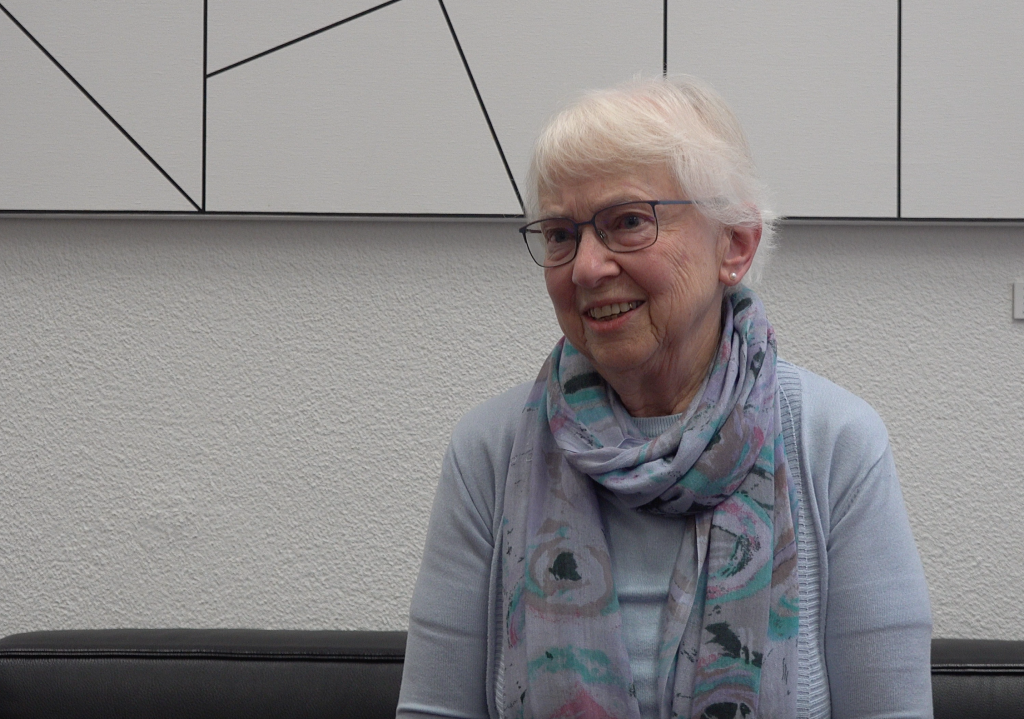Erica Kuster was born in Basel in 1941 and grew up in a bourgeois, patriarchal family in St. Gallen. Her father was a politically active paediatrician and dominated as head of the family. Her mother had fought hard for her education from a young age – something that was not at all a matter of course at the time. Erica Kuster was deeply influenced by her mother’s attitude, which instilled in her a sense of independence and assertiveness, even if the distribution of roles in the family remained traditional.
Her school days were not without hurdles, as she had to struggle with learning difficulties that would today be called dyslexia. Nevertheless, she found her way and after graduating from high school, she decided to train as an occupational therapist – a new and little-recognised profession at the time, which fascinated her because of the way it combined medical, technical and interpersonal aspects. Despite strict hierarchies in the healthcare sector and initial social prejudice, she successfully completed her training and was one of the pioneers of occupational therapy in Switzerland.
She became involved in professional politics early on and joined the professional association, where she worked hard to gain recognition for occupational therapy as a tertiary-level profession. The lack of legal recognition for healthcare professions at the federal level was a major challenge. Erica Kuster repeatedly had to work hard to convince people, question existing regulations and use tactical skill to get her concerns heard.
Her personal life was also marked by challenges. After an early marriage and divorce, Erica Kuster was confronted with legal and social difficulties as a single mother. These experiences encouraged her to campaign for women’s rights and the reform of marriage law. She saw the introduction of women’s suffrage in 1971 as an important turning point. Her father, a supporter of women’s suffrage, still doubted in 1958 whether women were ready to take on political responsibility – an argument that was widespread at the time. For Erica Kuster, however, this introduction was the impetus to become actively involved in politics, for example by collecting signatures or supporting disarmament initiatives.
Erica Kuster’s life shows how closely personal experiences, professional commitment and social change are interrelated. With persistence and persuasiveness, she fought for the recognition of her profession and for women’s equality. Her commitment is an impressive example of the importance of taking on challenges and critically questioning existing structures.

